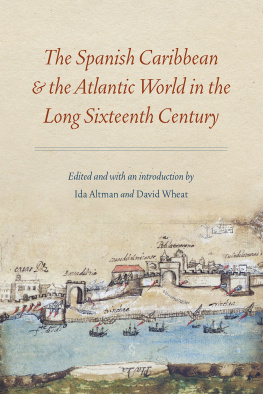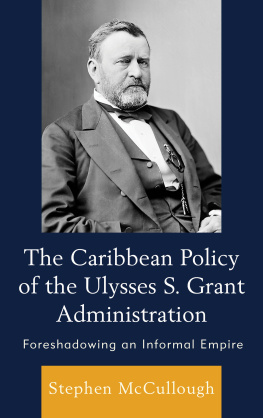James Philip
________
REMEMBER BRAVE ACHILLES
________
Historians will tell you sometimes in good faith although not always, that the last days of peace are often the final flowering of ages of innocence. That had people known what they were about to get involved in, the if we knew now what we knew then argument, that they might have drawn back at the very brink and not, subsequently, fallen over the edge into the abyss yawning before them.
In 1978 none of the parties could honestly claim not to have known that the outbreak of war was going to plunge an awful lot of people into a world of pain.
Ignore the siren calls of New Englanders who had convinced themselves that they were in some way special, that the normal rules did not apply to them and that somebody else would always pick up the tab in terms of blood and treasure. They had been sheltered too long beneath the imperial umbrella and besides, all that was soon to change. That it had not been appreciated that 1978 was not 1878 was not the Old Countrys or the rest of the Empires fault, it was a thing that was deeply embedded, canker-like in the psyches of the elites of the First Thirteen.
It had been Imperial policy, accepted wisdom, if you like, that the way to keep New England sweet was to treat it like the spoiled child of the Empire. In India the largest standing Army on the planet kept the peace and defended the borders of the Raj. True, the vast sub-continental fiefdom was ruled and administered by an unholy alliance of tame captive princes and thousands of District Officers, only loosely regulated by the various regional and the one supreme Governor the Viceroy in Delhi but actually, it was the six hundred thousand men of the Indian Army, plus the hundred thousand or so men of the Air Force which really kept the peace, sometimes with ruthless, brutal severity. That sort of thing had been quietly phased out as long ago as the 1790s in North America; after all, the New Englanders and the few thousand loyal Canadians were, at that time, more English than the English and by most standards, as law-abiding if not more so than the hoi polloi back in the Old Country. Thus, the New World became a recruiting ground for the Army and the Navy, not garrisons because a little occasional local misunderstanding with the native Indian tribes apart, there really was not a lot for an army to do in New England. Thus, the great, straight trees of New England, particularly Maine, Vermont and New Hampshire became the raw material from which generations of the Empires wooden walls were built, and later, the rich iron and coal deposits of the interior fed the maw of the British, and in no time at all, New England industrial revolutions which changed the World forever in the nineteenth century.
The business of New England became business, its society very nearly self-regulating, a giant extension of the Old Country three thousand miles away across the North Atlantic; unlike Australasia which was always just that little bit too far away, too alien to be England transported abroad, New England was somehow inextricably tied to the apron strings of the Empire. The peoples of the British New World did not, like others, become in time Australians, or New Zealanders, Indians or Ceylonese, Maltese, Gibraltarians, or South Africans, they remained English; the clue was in the name of their vast, over-mighty colony, New England.
After 1776 there was no further rebellion. Well, not one of note, assuming one forgets the ones the French and the Spanish attempted to foment in the early nineteenth century and the doomed attempts of various regimes in Nuevo Granada, Cuba, Santo Domingo and Hispaniola to cause trouble in the south down the years. Essentially, 1776 was the last time the English of New England united albeit in no little disharmony, the revolution is often after all referred to as the American Civil War in common cause against the perfidy of Albion. Englishman had not fought Englishman in the First Thirteen since the last dregs of George Washingtons shattered Colonial Army was mopped up in the course of General William Howes ruthlessly prosecuted Hudson Valley campaign of 177677.
Two hundred years later visitors to Virginia or up-colony New York, or the landscapes of the middle colonies Connecticut, Massachusetts and New Hampshire might be struck by how the patchwork of fields and farms, the woods and dells, the babbling brooks and picturesque country hamlets reminded them of the English Home Counties. The only thing a visitor would take home with him, or her, was the overwhelming impression that everything in New England was bigger, that there was more of it, and that when they returned home the United Kingdom seemed, crowded, and a little faded in comparison.
Even that was a matter of pride to New Englanders.
They were Gods own people, blessed with a land that was endlessly fecund, limitless in its expanse and so rich in mineral wealth that one only had to put a shovel into the ground to turn up one or other kind of gild.
So, why on earth would the Treasury back in London have ever thought it was a good idea to turn this new Xanadu into an armed camp?
There was also, perhaps, a nagging remembrance of what had been the root of all that unpleasantness back in the 1760s and 1770s.
Taxation, with or without representation
In Whitehall the movers and shakers of Empire could never quite forget that all those English gentlemen farmers back in the eighteenth century, and nowadays, great captains of industry, magnets and entrepreneurs, the owners of the great mines and blast furnaces, shipyards and railroads, the cotton kings, tobacco planters and merchant bankers, really did not like paying tax.
Historically, New England had never been taxed according to its means, or its wealth. Indian subsistence farmers in Bengal in the middle of a famine were still expected to pay their due, even the gold and diamond kings of the Witwatersrand in South Africa paid their due, sheep farmers in New Zealand even under Imperial Preference were taxed as would be an Englishman on a hill farm in Northern England or Wales. But that was not for New Englanders; not for them parity with other citizens of the Empire. So, when war or global trade impinged elsewhere, New Englanders were insulated. The Colonies borrowed against Imperial guarantees, piling up mountains of debt safe in the knowledge that sooner or later the British taxpayer would pick up the tab; and business went on as normal in the First Thirteen.
In London, successive governments had known for over a century that if there was ever a second Great War, or even a major conflict in the Americas, then their exchequers could not stand the strain; and that New England would have to step up to the crease, stand tall and face the music.
Unfortunately, by the time a government was in power in Westminster with the moral fortitude and the native gumption to address the issue war was already in the offing, and the debate with the colonies of New England never happened.
Unlike the taxes, which did happen.
The great imponderable was: would the New Englanders patriotism survive the test of the taxation required to defend their modern Eden?
Of course, the answer to the conundrum was complex.
Neither did the consequences immediately become evident.
Two hundred years of complacency takes a long time to unravel.
Thus, destiny determined that April 1978 was the month when assumptions, so ingrained that they had seemed immutable, as if carved in the very living rock upon which New England was founded, were tested as never before.
Sir George Horace Walpole[
Extract from A History of New England, Volume V: 19571982 printed in July 1983









